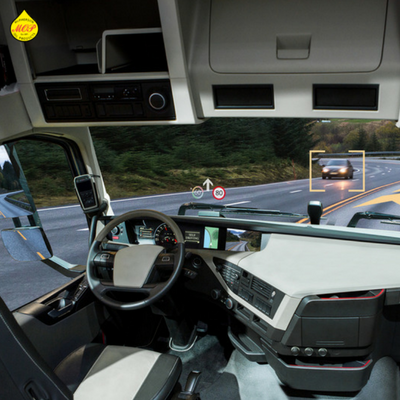Driving Technology & Its Role in Your Fleet’s Future
06 Jun 2018, Posted by in General, Industry Information
Truck driving is one of the most common jobs in the US and many other countries around the world. However, recent advances in autonomous technology are threatening the jobs of truck drivers. But just how advanced is driving technology, and how is it likely to affect commercial fuel services going forward? Here’s what you need to know.
Autonomous Trucks Are On Their Way
Although self-driving vehicles are not perfect, and their programmers have challenges such as the “trolley problem”, they are undoubtedly going to become more advanced with time. You may see the occasional sensational headline that demonizes a self-driving vehicle that has killed a passenger or pedestrian; however, the reality is that they are still safer than people-driven vehicles, although they’re not flawless.
These sensational headlines, mixed with the high costs currently associated with autonomous self-driving trucks, are keeping adoption relatively low so far. In fact, a majority of the 128 largest US transportation companies are keeping away from them, at least for now. A mere 9% have implemented some kind of autonomous or semi-autonomous technology thus far, although around 65% of these companies claim that self-driving trucks will become mainstream within the next decade.
How Commercial Fuel Services Can Benefit from New Technology
Technology such as electronic logging devices (ELDs) could have a lot of economic value for fleets and their drivers. Emerging ELD technology can allow managers to monitor their drivers’ behavior, eliminate bottlenecks, and reduce wasted time. Truck driving is indeed a service where time is money. If new technology can allow the industry to more accurately determine when time is being wasted, fleets stand to gain profits as a result.
As drivers subsequently become more efficient with their routes, they stand to gain larger margins, meaning that they should be paid more. The average salary for a truck driver is currently around $40,000, so a pay raise could be welcome news for many drivers. Ultimately, better efficiency and productivity leads to more money and fewer mistakes, which can only be a step in the right direction.
Technology-Related Job Opportunities Are Rising
Although the dawn of self-driving trucks and automation can threaten the jobs of truck drivers, it’s not necessarily all bad news. For example, new technological solutions require additional workers who will build, maintain, and manage the technology itself, as well as workers who intervene when the system goes awry, which will inevitably happen.
It’s easy to suggest that every truck driver should go out and earn an advanced engineering degree to prepare themselves for the future, but that isn’t easily attainable for many of them. It may also be short-sighted, as much could happen in the future to deter the adoption of self-driving trucks, such as government regulation and bad publicity. Although scientists and researchers may agree that self-driving vehicles are statistically safer than human drivers, getting public opinion on their side ought to be a long and bitter battle.
Technology is always changing, so you should always be in the know about how it will impact your fleet. At McPherson, we guarantee that our knowledge will save you money and time. Contact us today to learn about our total petroleum management solutions that we’ve spent decades refining.
About: McPherson Oil is proud to distribute ExxonMobil products in the southeast including Alabama, Arkansas, Florida Panhandle, Georgia, Louisiana, Mississippi and Tennessee.
